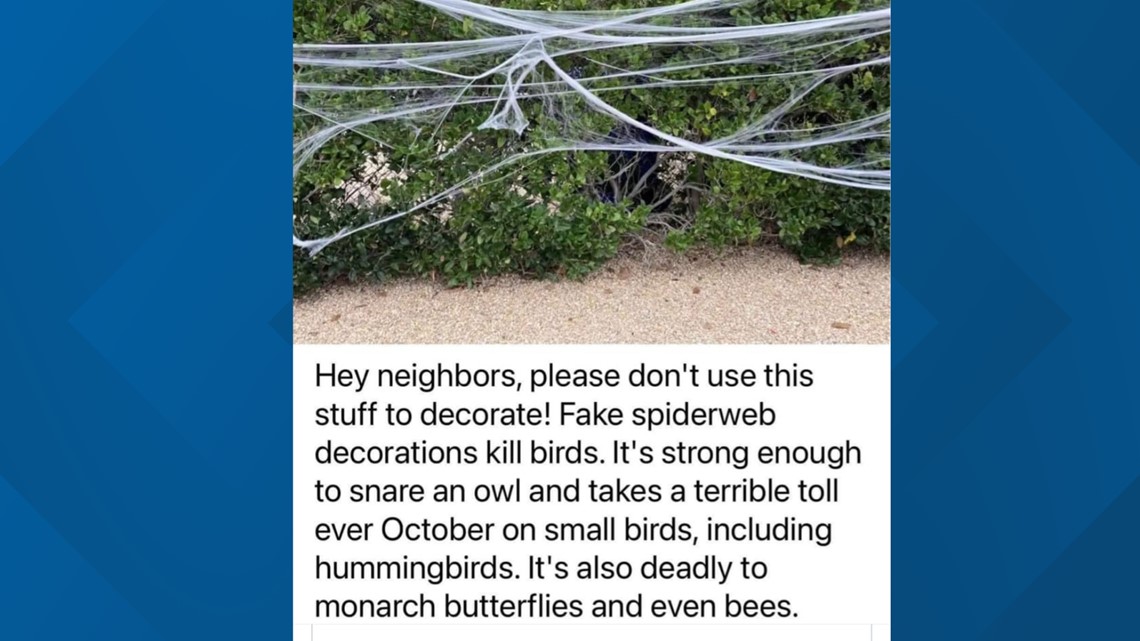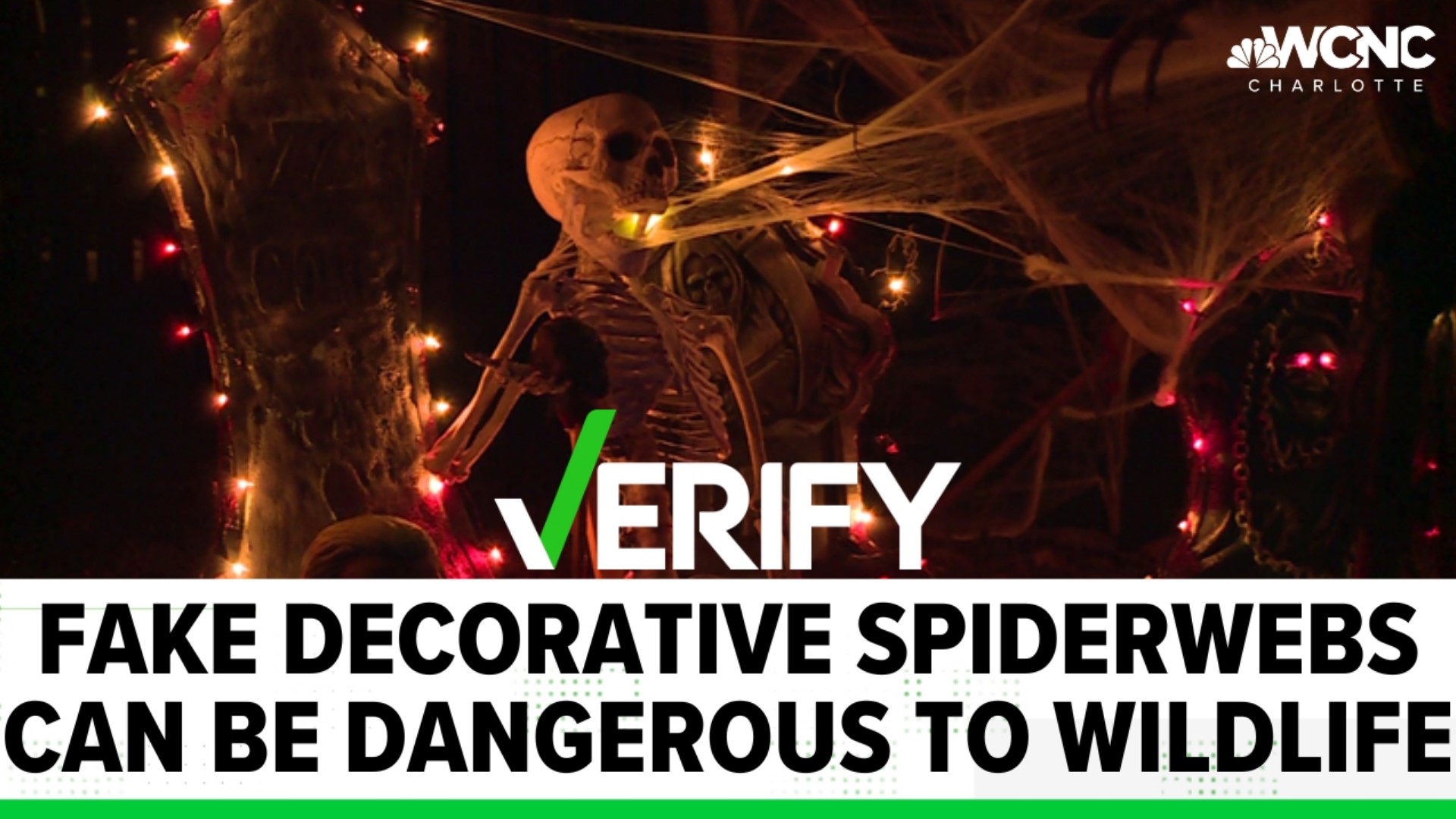CHARLOTTE, N.C. — 'Tis the season for outdoor holiday decor, and this time of year, it's common to see the spooky stuff, like life-sized skeletons, glowing pumpkins, and fake, cottony spiderwebs ahead of Halloween.
Social media users might also be seeing warnings that fake spiderwebs can cause problems for insects, birds, and other wildlife.
One such post reads in part:
"Fake spiderweb decorations kill birds. It's strong enough to snare an owl and takes a terrible toll ever [sic] October on small birds, including hummingbirds."
The Question
Does fake decorative spiderwebbing pose a danger to wildlife?
The Sources
- Falyn Owens, Extension Wildlife Biologist, North Carolina Wildlife Resources Commission
- Jennifer Gordon, Executive Director, Carolina Waterfowl Rescue
- Judy Walker, Mecklenburg Audubon


The Answer
Yes, fake decorative spiderwebs can be dangerous to wildlife.
However, experts say animal run-ins with these types of decorations are less common than with other human-made items, like glue traps, for example.
"I would say... five cases or so a year, compared to something like a glue trap that we could see five cases in a week," Gordon said, regarding how common the spiderweb cases might be.
Walker said the cottony webs can act like mist nets and possibly pose more problems in low light or nighttime conditions.
"Unlike real spiderwebs, fake ones don’t break at all," Walker said.
Owens said people could clear out the cobwebs altogether or place them mindfully, avoiding areas where birds might nest or frequent.
"Make sure, if you put it up, that it's very visible," Owens said. "Because if people can see it, the birds are going to be able to see it, and don't hang it across big areas where birds are flying."
Gordon recommends placing the webbing inside of the windows, instead of the outside, and monitoring for any impacts the outside decorations might be having.
"If you're going to put the decorations up anyway, just be aware, and visually check them every day," Gordon said.
Both Owens and Gordon said people should consider other common types of holiday decorations, like tinsel and garland, that might pose a problem too.
"Christmas decorations that feature very small lifelike berries can be mistaken as real berries to birds," Owens said. "Upward-facing floodlights that people might use to illuminate their Halloween decorations--they can actually distract birds when they're migrating and sort of mess up their migratory flight patterns."
Contact Vanessa Ruffes at vruffes@wcnc.com and follow her on Facebook, Twitter and Instagram.
VERIFY is dedicated to helping the public distinguish between true and false information. The VERIFY team, with help from questions submitted by the audience, tracks the spread of stories or claims that need clarification or correction. Have something you want VERIFIED? Text us at 704-329-3600 or visit VERIFY.

